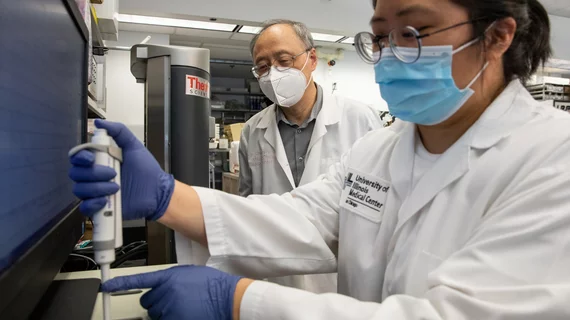Researchers have developed a new antiplatelet medication that could help specialists treat myocardial infarctions, sharing their findings in Science Translational Medicine.
“Unfortunately, current antiplatelet medications prevent the blood clotting that cause heart attack and stroke but also disrupt platelets’ ability to stop bleeding if a blood vessel is torn,” corresponding author Xiaoping Du, MD, PhD, University of Illinois at Chicago, said in a statement. “In some cases, severe bleeding can be life-threatening. The magic of this new drug is it prevents clots but does not make people prone to bleeding, which other drugs have failed to do.”
The peptide-derived drug, M3mP6 HLPN, was tested on mice so that researchers could assess its effectiveness as a heart attack treatment. And Du’s team found that mice receiving the drug experienced less cardiac damage, including less clotting and inflammation, than those that did not. Survival was also better for mice given M3mP6 HLPN.
“We were hopeful that this new drug, which does not cause blood vessel leaks, would help limit reperfusion injury and reduce the chance of heart failure and death, and our hypothesis was proved correct—we saw very promising results from our study,” Du added in the same statement.
The researchers will continue their work and hope to eventually test the drug on humans.
The full analysis from Science Translational Medicine is available here.

